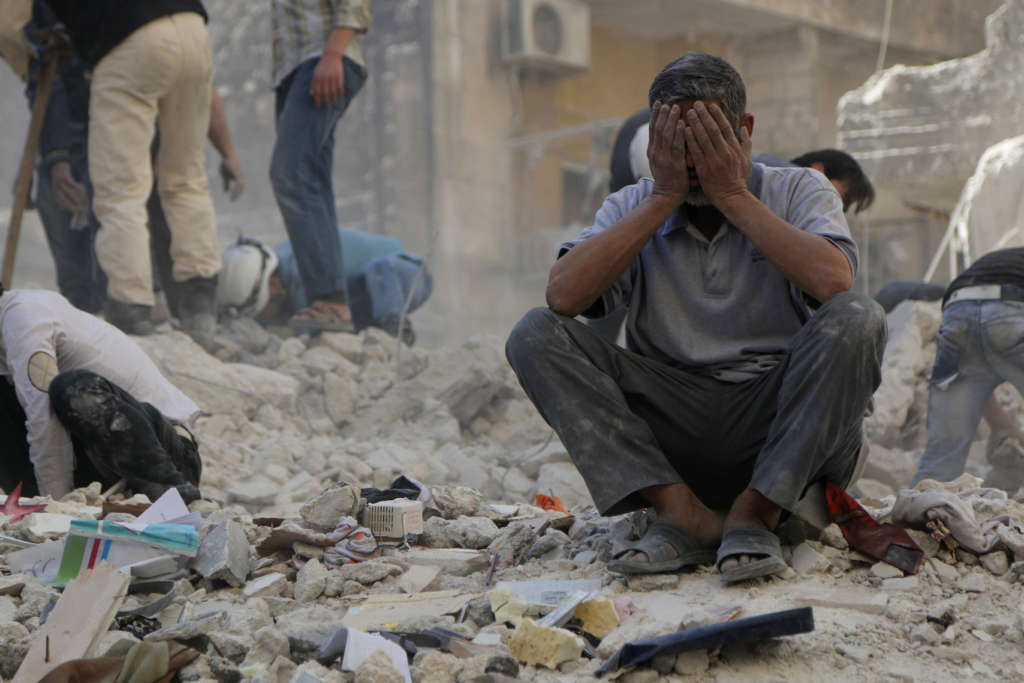Russia said on Thursday it had launched a “large-scale humanitarian operation” together with the Syrian regime around the battered city of Aleppo to open humanitarian corridors as the regime came under criticism by a human rights organization on the use of cluster munitions.
Defense Minister Sergei Shoigu told Russian news agencies that three humanitarian corridors were being opened “to aid civilians held hostage by terrorists and for fighters wishing to lay down their arms” and one more corridor to the north of the city for rebels to flee with their weapons.
Opposition neighborhoods of Aleppo have been effectively besieged by regime forces backed up by Russian air power since July 7, when regime troops advanced to within firing range of the sole remaining supply route into the east.
Medical posts and food handouts would be provided along the three corridors intended for civilians and fighters who have put down their weapons, Shoigu said.
Human Rights Watch said in a report released Thursday that the Syrian regime’s air campaign against rebels is widely using cluster munitions, banned by more than 100 countries because of their indiscriminate nature.
The rights group said it had documented 47 cluster munitions attacks, which killed or wounded dozens of civilians in opposition-controlled territory in the last two months.
“Since Russia and Syria have renewed their joint air operations, we have seen a relentless use of cluster munitions,” said Ole Solvang, HRW’s deputy emergencies director. “The Russian government should immediately ensure that neither its forces nor Syria’s use this inherently indiscriminate weapon.”
Cluster munitions are containers that explode in the air to distribute smaller bombs over a large area.
Russia has denied using cluster munitions in Syria, HRW said, but evidence was growing that it had stockpiled the weapons and either used them or participated in attacks where they were used.
Cluster munitions were used in a July 11 attack in the northwest province of Idlib that killed at least 10 people, HRW said, and a picture taken near the site showed a bomb being dropped by an SU-34 – a jet it said only Russia uses.
Photographs of the aftermath of another attack a week later, near the al-Tanf border crossing in southern Syria, showed cluster munitions remnants, including unexploded bomblets, or sub-munitions, HRW said. Rebel fighters and the United States said the raid was carried out by Russian jets.
Russia is not a signatory to a 2008 United Nations treaty that bans use of cluster munitions because of their indiscriminate nature and the threat to civilians posed by unexploded bomblets, which remain a long-term threat.
Since mid-2012, Syrian regime forces have used both air-dropped and ground-launched cluster munitions, HRW said.
